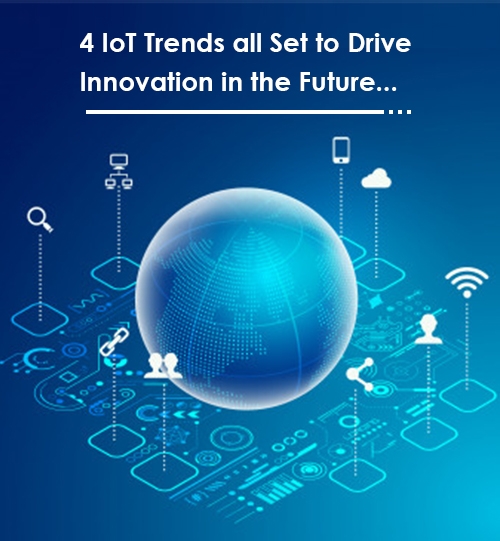Internet of Things (IoT) has been gaining high momentum lately. The persistent implementation of IoT in the last 4-5 years has now turned into a sought-after trend. This technology has radically changed the way we communicate and look at the world. Connecting things like TV, AC, electrical meter, etc. to your mobile or any other smart device and operating it with the help of cloud support is something beyond our imagination. However, IoT has made it possible by disrupting almost every industry.
According to the Gartner Research project, there are approx. 27B IoT devices in the global market in 2019, which is anticipated to elevate to 75B by 2025. Besides, IoT global market will rise to 457B by 2020, which ensures that IoT is going to be a boon for the world. The continuous evolvement in technology is facilitating so many things in diverse marketplaces.
Below, we have shed light on a few IoT trends that are going to play a significant role in the coming years.
5G Networks
5G networks will have a considerable impact on the Internet of Things due to their increasing consumer readiness. Once they become mainstream, they will operate at a way faster speed than we are accustomed to and thus, enable IoT to access the locations that are believed to be inaccessible.
Also, the cable networks may work well with IoT devices in some instances, but these networks can’t match the speed of 5G networks. 5G networks are probably going to make smart cities more viable than ever before.
Artificial Intelligence (AI)
The IoT and AI are closely linked to each other. Let’s understand this concept with an example.
Suppose a business is planning to run an industrial network that is responsible for the processing of large volumes of data each week. Handling this task manually is nearly impossible for the businesses that want to streamline their processes.
So, machine learning algorithms will need to be implemented to record the data and recognize the outliers. The fusion of IoT and AI makes this possible, allowing businesses to learn more about the early warning signs of upcoming issues, run smoothly, and foster their growth.
Voice-Enabled Devices
The internet has already given voice to a plethora of devices. Now, the Internet of Things is going to voice almost everything that we possess. We all are well-accustomed to voice assistants like Siri and Alexa introduced by Apple and Amazon respectively. The voice-enabled systems allow us to perform all sorts of simple tasks like setting the alarm, ordering a meal, booking a cab, etc. with just a voice command. Car companies are also working on more vocal automobiles to add value to people’s lives.
Voice control options are going to become more sought-after over the coming years. The IoT will make life easier by voicing up almost every task and allowing people to become more productive. Enterprise technology and industrial technology will also get the opportunity to leverage these technological advancements.
Cloud Computing
IoT stimulates communication between devices by connecting them with the internet. For the successful execution of this communication process, there is a need for storing massive data, and IoT exploits Big Data and Cloud Computing for this purpose. While the Big Data saves large chunks of data, Cloud Computing ensures the security and timely transfer of the data. In brief, we can say that cloud computing will be one of the best trends in the foreseeable future.
Final Verdict
There is a lot more to the trends of the Internet of Things. The trends explained above are just the beginning of what is possible with an interconnected world in the future when the IoT devices will be widely adopted. The use cases for IoT-enabled devices will continue to grow and expand in the connected future. Since IoT devices will certainly offer more features, functionalities, and productivity from their IoT-connected devices, organizations should partner with an IoT development company to take full advantage of these unique capabilities of IoT.







